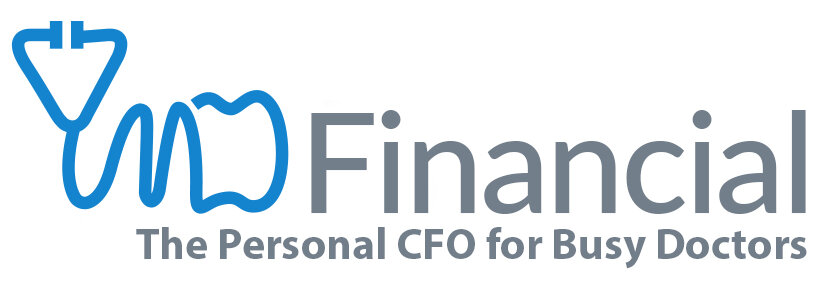So many doctors come to us because they are beset with financial decisions. “Should I pay down debt first? How much should I be investing? Should I be contributing a certain amount to my 401K?” Not knowing where to start can be absolutely overwhelming, and can leave you wishing you were on a board game--where there's always a "Start" square to place your game piece!
We know your financial well-being isn’t a game, so this week Katherine is interviewed by Brown University's Dr. Kristy McAteer as they discuss some strategies for climbing your investment ladders, and help you avoid some perilous financial chutes.
Ladder 1 - Emergency Fund
Do you have an emergency fund?
We recommend doctors have 3-5 months of fixed expenses saved in case of an emergency. Fixed expenses meaning: rent/mortgage, car payment, regular utility bills, and sometimes food.
*According to the Bureau of Labor Statistics, the US unemployment rate in April 2021 was roughly 6%. In the same month of April 2021, the unemployment rate of Health Care and Social Assistance workers was 3.4%. It would suggest that the ease of finding employment for healthcare professionals is roughly 2x that of the general population, and 3-5 months is (thankfully) a relatively short time frame compared to those seeking careers outside of medicine.
Chute
Not having an emergency fund set aside can leave you resorting to using credit cards for these unforeseen expenses. This debt can live with you for a long time, which brings us to our next ladder.
Ladder 2 - Paying Off Debt
Student loan debt that qualifies for Public Service Loan Forgiveness (PSLF) aside, if you have around 5-6% debt, we highly recommend seeing a debt specialist.
If your debt is in the 2-3% range, we’d consider that low, and something you should keep paying off gradually, over time. This debt can actually help improve your credit score and potentially aid in securing better interest rates on refinancing or consolidations.
Chute
We have seen in the past, doctors paying off high-interest credit card debt only to charge more on these cards all over again! There needs to be a complete habit shift to keep your high-interest debt down for good.
Ladder 3 - PSLF/Student Loans
Circling back to student loan debt, maybe being in public service has run its course, and the private sector is more appealing. That is O.K. Your loans will no longer qualify for PSLF, but this should prompt a reevaluation of your student loan debt, and the option of consolidation.
Chute
Speak with your advisor to see what interest rates you qualify for. If not, you could be toiling in a public sector job with limited pay just to sustain your PSLF qualification. Or, upon moving to the private sector, saddle yourself with an undesirable interest rate on your student loans--losing out on tons of money!
Ladder 4 - Non-Qualified Accounts
This is an account that doesn’t qualify for special tax advantages, e.g. a brokerage account, or bank account. This account is liquid, meaning it can be accessed at any time. This type of account can also act as an emergency fund in a pinch! We recommend investing a percentage in bonds. This will help the emergency money keep up with inflation versus having the total sitting in a savings account--a type of account that only averages .06% interest.
Chute
Leaving a large amount of cash in bank accounts (specifically), will leave your money at a disadvantage. Your fund will continuously decrease in value, because interest gained in these accounts is not keeping up with the rate of inflation.
Ladder 5 - 401Ks and 403Bs
The bare minimum put into this account should be at least what your employer is matching. We typically recommend Roth options, if they’re offered. If your budget allows for it, max out your contributions. If you’re under 50, that is $19,500.00/year as of 2021.
Tax laws will change, so contribute to your Roth 401Ks or 403Bs now while rates are low! Bonus thought: while rates are low you may also consider Roth conversions.
Chute
Not contributing the bare minimum to these employer-offered accounts will leave money on the table, money that could be working to build your retirement! Another hazard to watch out for is employer vesting schedules; your employer matched funds may be revocable if you do not stay at that current position for a specified amount of time. This is important to know when you’re considering other employment opportunities.
Something to keep in mind as we close out this podcast: the reason you’re investing now is to spend later in retirement--your money hasn’t disappeared! Keep climbing your own investment ladders; we’ll be here to guide you to the top.
*https://www.bls.gov/iag/tgs/iag62.htm
Listen on Apple Podcast, Google Podcast or Spotify
To hear the original podcast, check out the Brown University page here.
CONTACT US
1-888-256-6855
Remember that you can send us any questions or potential topics at: Info@MDFinancialAdvisors.com
Katherine Vessenes, JD, CFP®, is the founder and CEO of MD Financial Advisors who serve 500 doctors from Hawaii to Cape Cod. An award-winning Financial Advisor, Attorney, Certified Financial Planner®, author and speaker, she is devoted to bringing ethical advice to physicians and dentists. She can be reached at Katherine@mdfinancialadvisors.com.

![Investment Chutes and Ladders for Doctors [Podcast]](https://images.squarespace-cdn.com/content/v1/561feb4ee4b0de0eb30d6d3c/1630603004437-1V59LP5EZQYY7272TOIQ/20565034352_576d44a39f_k.jpg)
